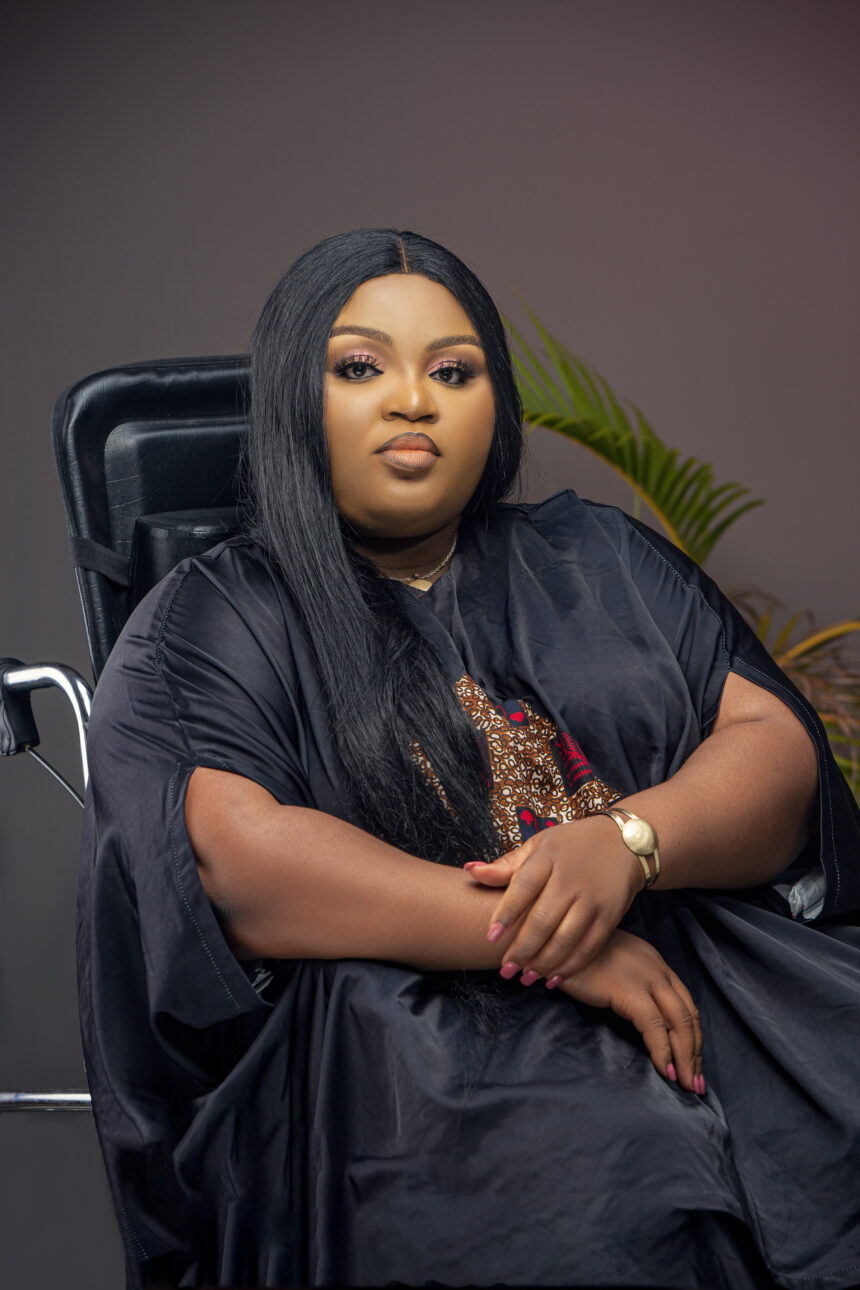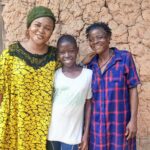Amidst the bustling activity of travellers at Abuja Park, Stephanie Akpen found herself gripped with concern over her journey back to her home state of Benue. As she looked around, her mind wandered back to the countless times she had asked bus drivers if they could accommodate her wheelchair on their buses, only to be met with blunt refusals.
This time, her mother had taken the initiative to ensure her wheelchair was at the park in advance, ready to be transported to Benue. However, upon her arrival, Stephanie was told that her wheelchair was still in Abuja. She couldn’t help but feel a profound sense of disappointment at the news.
As a person living with a disability in Nigeria, Stephanie has had to confront many such discriminations and be forced to plead for inclusion and accessibility, sometimes at the risk of her health.
Hearing the disheartening news, Stephanie faced the daunting prospect of navigating the journey “with my knees, without the aid of my wheelchair,” she recalled.
“Having a disability entails numerous struggles, particularly in Nigeria, where accessibility is scarce. It’s rare to find places that are readily accessible. You contend for inclusion, accessibility, visibility, and voice. Essentially, everything you need in life becomes a struggle when you have a disability,” she said.
Challenges Faced by Persons with Disabilities in Nigeria
In 2023, the MacArthur Foundation suggested that about 29 million Nigerians were living with some form of disability, including visual, hearing, physical, intellectual, and communication impairments. Limited statistical data on the demographic distribution of disability in Nigeria suggests a higher prevalence among women compared to men, with the North-East region being particularly affected due to the insurgency.
Myths and wrong perceptions usually surround various forms of disability which have been the primary reason and excuse for negative societal responses towards the affected individuals.
Hence, Persons With disabilities (PWDs) confront countless challenges that are compartmentalized into economic, social, and infrastructural difficulties. Stigmatization, limited access to education, inadequate access to healthcare facilities, and unemployment are some of the tortures that they experience often.
In Stephanie’s case, there was limited access to transportation or movement.
Likewise, Debola Daniel, the son of a former governor, was discriminated against at a popular restaurant. “Today, I felt less than human, like a guard dog not allowed into the house. Lonely and isolated” were his words in reaction to a NO WHEELCHAIRS ALLOWED declaration made by the manager at the restaurant.
However, technologies and the Internet have made it easy for PWD to advocate for themselves. Platforms like X (formerly Twitter) have helped to amplify their voices and call for the enforcement of disability rights.
Stephanie said, “I had to go online to share this experience to bring attention to other transport companies. Somehow, the transport company caught wind of it. They reached out, apologizing through messages, but it was about a month after the incident occurred.
“As a result of the post, I found another transport company that allows me to travel with my wheelchair. Consequently, the transport companies had to adjust and make arrangements, acknowledging that persons with disabilities travel and need accommodations like bringing their chairs along on trips.”
Likewise, in Debola’s case, in a statement issued by the Director of Public Affairs and Consumer Protection, Obiageli Orah, the organization announced its decision to cease operations at the restaurant. This action follows an investigation, which aligns with the provisions of the Lagos State Law on People with Special Needs.
Stephanie’s Journey into Climate Change and Advocacy
Social media has also helped PWD like Stephanie to take on climate advocacy, which stems from her interest in the climate crisis.
“What we primarily engage in is farming in my state, Benue. Nearly every family in Benue is involved in farming. However, the herders from the northern states faced water scarcity and a lack of food for their cattle, which led to migration. The herder-farmer clashes were triggered by climate change, by the climate crisis,” she told Prime Progress.
Buttressing her point, a recent study established that climate change had caused significant conflicts between farmers and herders, leading to social and psychological disorders, loss of lives, property vandalism, as well as forced migration and displacement of people.
While the farmers plant to feed the country and make economic gains, the herders bring their cattle and feed on the farmer’s harvest. The clash, which has led to the creation of internally displaced camps, prompted Stephanie to start advocating for climate justice in Nigeria.
According to the United Nations Development Programme, climate justice proposes that countries, industries, businesses, and people that have become wealthy from emitting large amounts of greenhouse gases have a responsibility to help those affected by climate change, particularly the most vulnerable countries and communities, who often are the ones that have contributed the least to the crisis.
As many low-income countries like Nigeria bear the losses, developed countries are expected to be responsible.
Working under structural inequalities means that not everyone is affected the same way by climate change, even in the same country. Factors like race, ethnicity, gender, and wealth can make some people more vulnerable, like many in Nigeria. Currently, she works as a climate change advocate with the African Activists for Climate Justice project, Education as a Vaccine.
Stephanie believes that women often feel the effects of climate change more because they have fewer resources to deal with sudden changes. Recognized as PWD, she asserts that they are also at risk because climate change can affect their health, food, water, and jobs, especially in poorer countries.
“Since women and PWDs are the most affected when climate change or a climate crisis occurs, it’s more appropriate to include them on the team. So what I do is use social media as a tool for advocacy. I discuss climate issues on social media, tagging stakeholders and other decision-makers,” Stephanie said.
“We aim to make them aware of the story and encourage action,” she added.
With social media, she calls equity and human rights at the core of decision-making and action on climate change. We use social media as a tool for advocacy.
Speaking about how climate change affects PWDs, she said, “It’s incredibly challenging to access and move around, especially for people with disabilities during climate crises. When floods occur, it becomes even more difficult. There have been instances where areas were flooded and people had to flee, leaving people with disabilities behind. While everyone else is focused on escaping, how does someone without the ability to run, particularly those who rely on wheelchairs for mobility, navigate such situations?”
Despite her passion for raising climate literate people, Stephanie said she is incapacitated to reach the people who need the information, as most of them are not even online.
“Due to my disability, I’m unable to venture into communities and undertake certain activities to raise awareness, which I really want to do. I aspire to educate women about the impacts of deforestation, pollution, and other environmental issues. However, I face limitations. I desire to reach out and share knowledge with those who may not even be accessible through social media. Unfortunately, I can’t physically meet them because the roads are inaccessible, which greatly affects me,” Stephanie said





